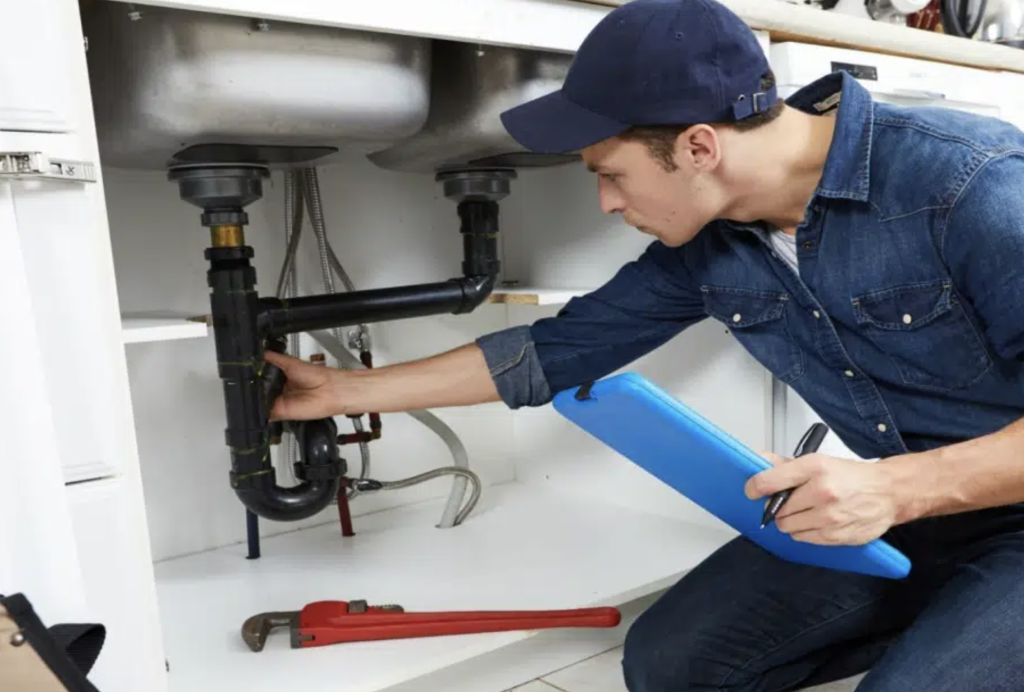The plumbing in your home carries hundreds of litres of water to your bath, shower, sink and washing machines every day. Normally we don’t give them a second thought, that is, until something goes wrong with them.
We only tend to notice problems with our indoor plumbing when there is a noticeable blockage, but slow drainage and blockages do not just suddenly occur, they can be a symptom that something has been developing for a while.
The Dangers Of Blocked Drains
One of the first signs of any blockage is the accumulation of water. Any puddles of water around your internal pipes or on the floor can indicate a blockage. Water from the toilet or washing machine should be investigated immediately. This type of water is known as greywater and depending on its category should be repaired as soon as possible by a Plumbers Melbourne. Greywater can contain contaminants and bacteria which can be harmful to your health. This is particularly true for blocked toilets; it can lead to water from the bowl overflowing onto the floor. Avoid coming into contact with faecal matter and E-Coli bacteria. Call in the plumber immediately.
Blocked or slow draining kitchen sinks present their own set of problems. Washing up water that contains food particles and grease will quickly develop an unpleasant odour. The food particles from plates and cutlery will soon begin to decompose which will only increase the severity of the odour.
If you have noticed that the water is draining out slower than normal from your kitchen or laundry sink, then it could be an indication that there is a potential blockage within your pipes. Just because your water is eventually draining doesn’t mean that the problem doesn’t exist, it simply means that your pipes may be heading towards a complete blockage.
When your pipes and drains become blocked, there is nowhere for the water to go. It will flow back up the pipes and come out at the lowest point, in many cases, this is the shower drain.
What Causes Blocked Drains?
There are many causes of blocked drains. One of the most common causes is the build-up or calcification of your pipes. Calcification is common in homes that have a hard water supply or high mineral contentment. Build-up from calcium, potassium, or magnesium occurs over time. This build-up narrows the width of your pipes which leads to less water being able to travel freely through the pipe. If you think of the pipes in your home as similar to the arteries in your heart, you’ll get the picture. When your arteries become clogged from plaque, blood can’t travel freely. The same happens to the pipes in your home.
Another cause of blocked drains is hair. When hair goes down the shower or bath outlet it binds itself with other grease and debris. This clogs the pipes and drains.
Soap is another culprit. You might not be aware that traditional bars of soap are made of grease or fat. The soap scum that you are familiar with is caused when the fat from soap combines with the minerals in your water. This soap scum enters your pipes. Over time it builds up and blocks your drains.
You already know not to try and dispose of food scraps down the kitchen sink, but one cause of blocked drains that you may be unaware of is tea leaves and coffee grounds. These don’t break down; they can build up in the pipes causing blockages.
You may think your washing machine can manage anything that’s what the water is there for, right? You might be surprised to learn that excess dirt or mud from clothing can lead to blocked drains. Imagine a large ball of mud that has been building up from all those dirty footy uniforms. You can understand why shaking off any excess dirt and waiting for the mud to dry out is so important for the health of your drains.
Another common cause of blocked drains is excess toilet paper build-up. Toilet paper can build up and clog your drains.
Trees are one cause of blocked drains that you might not immediately think of because the damage occurs outside the home. Tree roots are quite often responsible for damaging pipes. The roots will grow and flourish in the pipe’s water. This will invariably lead to your drains becoming blocked.
Call In The Professional
When we are faced with a blocked sink, we usually turn to a DIY solution. In some cases, that’s fine but you should consider the bubbling toilet or the slow draining kitchen sink may be an indication of an underlying problem of which you aren’t aware. Damage from blocked drains is expensive, don’t run the risk of an expensive repair bill, call in the professional.




